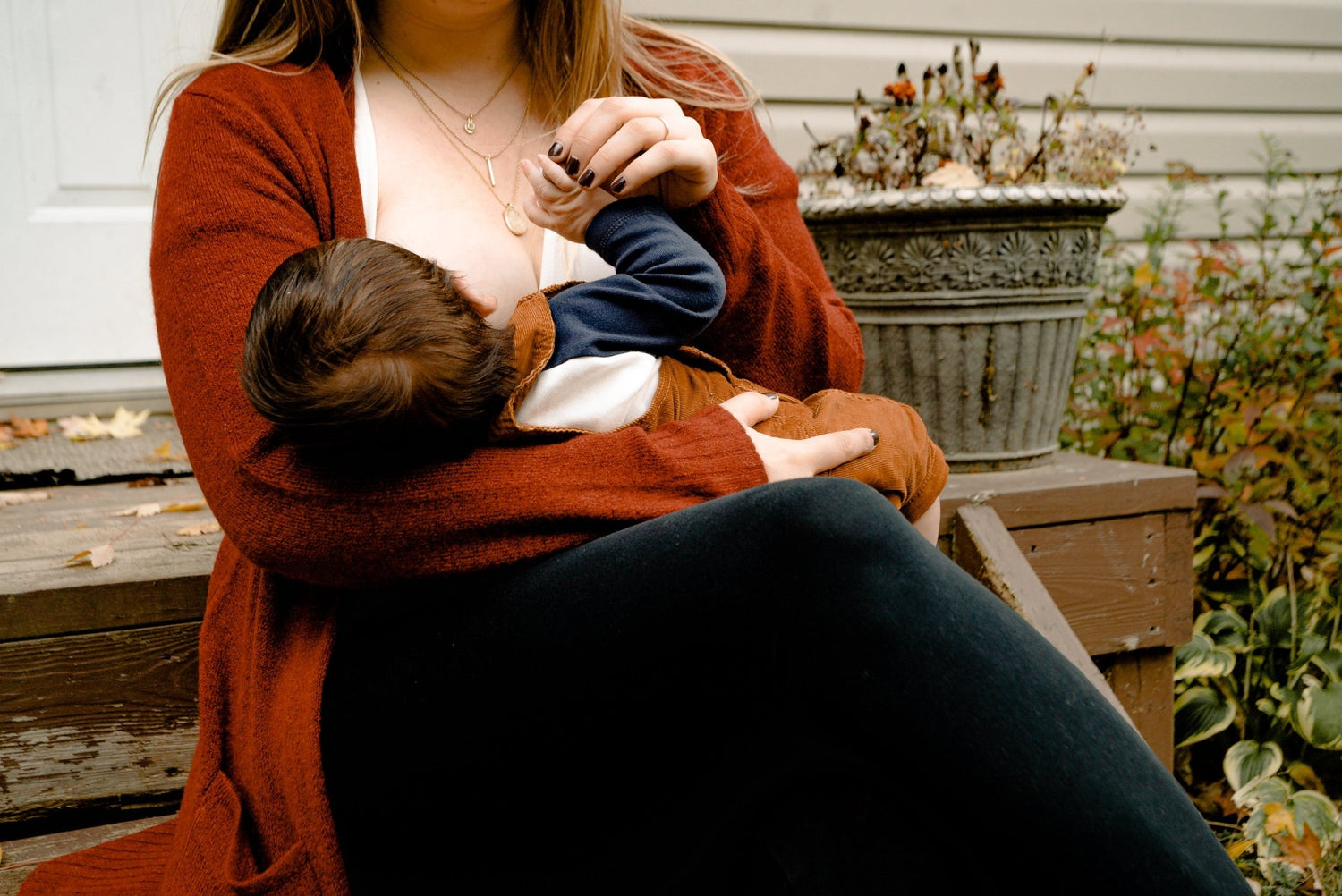Interpret signs of fatigue correctly and timely
Every parent's dream: you feed the baby, wrap it, give it a kiss, put it to bed, close the door and the baby falls asleep peacefully and contentedly all by itself. Yes, this notion is rarely the case. Parents with babies like this are really lucky, but what if they aren't?
|
Table of contents: 1. Sleep problems in babies |
1. Sleep problems in babies
When babies suffer from sleep problems, it is often because the signs of tiredness are interpreted too late. If you realize too late that your baby is tired, you often end up in a vicious circle. Overtired babies quickly start crying, it is not easy to calm them down again and we start to find possible solutions to the problems that calm the child down again. All this action naturally makes the baby even more tired and fussy. In order not to get into this situation in the first place, you have to pay close attention to your child and interpret the signs correctly and, above all, in good time.
2. The signs of fatigue

2.1. Yawning
Nothing indicates tiredness quite like yawning. So obviously, when babies yawn, they are tired. Then there is no time to lose and you should start putting the child to sleep, otherwise you will quickly become overtired and the crying will start faster than you can see.
2.2. Rub face and eyes and pull ears
When babies are tired, they automatically start rubbing their eyes or playing and pulling their ears.
2.3. Sucking
One of the best ways to soothe little ones is to suckle. For babies, this is just incredibly relaxing and many of them calm down very quickly. An increased need to suckle often indicates that the baby is tired.
2.4. Bad mood
As with any other unmet need, when they are tired, children start to feel bad. Nothing is right anymore and they just want to be worn.
2.5. Disinterest
When we are tired, we retreat. This is not possible for babies, so they make the best possible use of the opportunities they have gained. For example, if a baby can already turn its head, it will start to turn away from things like toys and people. However, disinterest can also express itself in such a way that it simply stares straight ahead into space. He loses interest in his surroundings.
2.6. Search for closeness
Babies feel most comfortable with mum and dad. So they need a lot of closeness in order to calm down. They then often snuggle up really close and literally bury their heads in mum and dad's arms.
2.7. Coordination decreases
Babies can often be seen to start kicking their legs and flailing their arms. But they can also make themselves very stiff. If the little ones are already active and can hold things, crawl or even walk, you can often see that all these movements become spongy. The baby drops things. When crawling, we stubbornly crawl straight ahead, come what may. Or when running, children trip over their own feet more than moving forward.

Every child is individual and their signs of tiredness are always different. It is therefore very important that you pay close attention to your child and study it properly. Some children really turn it up again, some become calmer. Therefore, not all signs have to appear all the time, sometimes it is just the inconspicuous yawn while it is in full action. The older they get, the better they can make themselves understood, and as they get older it often becomes easier to read the signs.
3. So much for the theory
I can tell you that this topic is actually a hot topic for me. Judging by the tips, Leon was tired all the time. It was 24/7 nagging and he was rubbing his eyes 24/7. Today I actually believe that Leon's nagging was actually mostly due to the fact that he was constantly tired. He couldn't fall asleep alone and falling asleep was always tedious and very stressful for both of us.
The only thing that helped, at least in the beginning, was breastfeeding. That actually calmed him down a lot and he was able to fall asleep, but I could never put him down. So he slept on my chest until he woke up again. But that only worked until about the 4th month, after which he no longer fell asleep while breastfeeding.
Since then I've been paying close attention to his signs of tiredness and have always laid him down when he yawned. That finally worked out and he only ever slept for exactly 30 minutes! So you could really set the clock by him. He then woke up crying and no matter what I did, he couldn't get back to sleep and then I just played with him again or whatever was on the agenda. However, after maybe 5-10 minutes he started yawning and rubbing his eyes again. Of course, after 30 minutes of sleep I would still be tired, but somehow I couldn't sleep anymore. My day really consisted only of putting him to sleep. It was really a tough time and I didn't know where the back and the front were. I've tried everything, I've really gone insane. Unfortunately, I can't tell you all the solutions...
It only got better when he slept for more than 30 minutes at a time, and I think that's a developmental step that you can't influence from the outside. At night, the sleep phases were always better and longer, but during the day it took a long time before he didn't wake up after a very short time and then couldn't sleep anymore. The less sleep he needed, the better it got. But it only got really good when he was about 1 ½ years old, since then he has been sleeping for about two hours at a time in the middle of the day. Even there it sometimes still happens today that he wakes up after about an hour and sometimes can only go back to sleep with my help.




